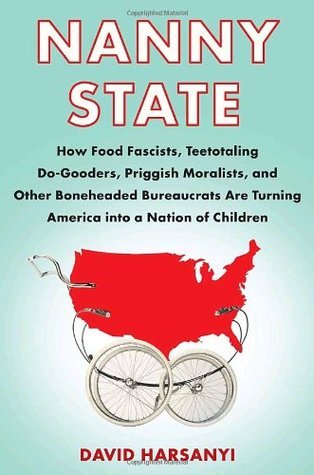Human Governance and Critical Thinking, A Conclusion In Four Notes
To conclude this series, let's look at how our capacity for critical thinking affects the way that we govern ourselves. We do govern ourselves even in the most tyrannical society; in that condition, we make the decision to submit, or we choose to fight.
Here are the 3 previous posts and a summary of each:
- Human Governance and Critical Thinking, Part One: the idea of critical thinking and it's relation to cognitive bias
- Human Governance and Critical Thinking, Part Two: some models of and components of critical thinking; scientific method, statistics, and logic.
- Human Governance and Critical Thinking, Part Three: an overview of irrationality and stupidity
From these discussions, let's focus on the following points:
- Humans act in their own self-interest
- Humans tend to make decisions based on heuristics/ cognitive biases rather than on a critical thinking or rational basis
- These tendencies are evolutionary developments
- It can be argued that sometimes the tendency to act “stupidly” is a result of self-interest
Now let us look at the three most common self-interest impulses that affect governance:
Rent-seeking and do-gooding (rent-seeking and do-gooding often combine with horrific effect on efficient governance; this can be seen in a Bootleggers and Baptists concept) are the first two, and the third is false-consensus effect.
Rent-seeking refers to processes that provide accumulation of profit from other people's capital and work. The term do-gooding has little to do with the actual performance of acts that create good results, but instead refers to processes with have the appearance of doing good and building personal social capital on that appearance.
I will provide some reading focusing on the concept of rent-seeking. The major issue with this research is that it doesn't focus on the government movers that facilitate rent-seeking, but rather on the businesses that benefit from it. Understanding this phenomena requires that the participation of politicians and bureaucrats be fully explored.

An another issue is that rent-seeking isn't studied in the context of the welfare-bureaucracy-NGO complex, or rent-seeking in terms of government services in themselves. https://www.zotero.org/stevedisme/items/q/rent%20seeking
- Calderón, & Chong. (n.d.). Do Democracies Breed Rent-Seeking Behavior?
- Chowdhury, F. L. (2006). Corrupt bureaucracy and privatization of tax enforcement in Bangladesh. Dhaka: Pathak Shamabesh.
- Congleton, R. D., Hillman, A. L., & Konrad, K. A. (2008). Forty years of research on rent seeking: an overview. The Theory of Rent Seeking: Forty Years of Research, 1, 1–42.
- Cowen, T., & Tabarrok, A. (1999). The opportunity costs of rent seeking. Journal of Public Finance and Public Choice, 17, 121–127.
- Hillman, A. L., & Ursprung, H. W. (2015). The political economy of an idea: The case of rent seeking. Retrieved from http://rdc1.net/Tullock%20Memorial%20Conference/Hillman%20rent%20seeking%20Tullock%20memorial%20conference%20(3).pdf Hillman, A., &
- Krueger, A. O. (1974). The political economy of the rent-seeking society. The American Economic Review, 64(3), 291–303.
- Mbaku, J. M. (1998). Corruption and rent-seeking. In The political dimension of economic growth (pp. 193–211). Springer. Retrieved from http://link.springer.com/chapter/10.1007/978-1-349-26284-7_10
- McPhail, E., & Farrant, A. (2012). The Servants of Obama’s Machinery: F.A. Hayek’s the Road to Serfdom Revisited? (SSRN Scholarly Paper No. ID 2139285). Rochester, NY: Social Science Research Network. Retrieved from http://papers.ssrn.com/abstract=2139285
- Pasour Jr, E. C. (1987). Rent seeking: Some conceptual problems and implications. The Review of Austrian Economics, 1(1), 123–143.

If you think there is a dearth of material regarding rent-seeking, there is practically no material researching do-goodingoutside of political argument. My own limited collection. My own theory on this is that many academics suffer from the do-gooding impulse themselves. Academics would then seek to avoid cognitive dissonance and opening themselves to bias criticism by ignoring the concept altogether..
CS Lewis provides the best description of do-gooders I have ever seen.
Of all tyrannies, a tyranny sincerely exercised for the good of its victims may be the most
oppressive. It would be better to live under robber barons than under omnipotent
moral busybodies. The robber baron’s cruelty may sometimes sleep, his cupidity may at
some point be satisfied but those who torment us for our own good will torment us
without end for they do so with the approval of their own conscience
Let us look two examples how rent-seeking and do-gooding interfere with efficient and moral governance; redistribution scams and Prohibition.
Redistribution policy appeals to both of these motives. Politicians, of course benefit from both motives. I think we can all name a politician who has grown wealthy in "public" service. These politicians can use redistribution policy to attract the votes of people with both rent-seeking and/or do-gooding motives.
A historical example outside of redistribution policy would be Prohibition. Bruce Yandle introduced a concept known as Bootleggers and Baptists, which can be summarized in having the bootleggers support prohibition for rent-seeking motive ( higher prices and less competition in selling booze) while the Baptists had the do-gooding motive of fighting "devil rum".

- Smith, A. C., & Yandle, B. (2014). Bootleggers and Baptists: how economic forces and moral persuasion interact to shape regulatory politics. Washington, D.C: Cato Institute.
- van Niekerk, J. (2016). Bootleggers and Baptists: why our views on drugs differ.
- Yandle, B.. (1983). Bootleggers and Baptists-The Education of a Regulatory Economist. AEI Journal on Government and Society.
- Yandle, B. (n.d.). Bootleggers and Baptists in Retrospect. Regulation, 22(3).

The expectation that humans will ignore short term self-interest and pursue goals leading to the common benefit in the long term is a symptom of yet another cognitive bias; the false-consensus effect. Basically, this bias leads us to believe that others think as we do. People with altruistic world views think that most other people hold the same altruistic goals, while people with a tendency towards self-interest at any cost assume the same behavior on the part of others. I will stress that this is different than do-gooding, although the results attained from political action based upon this cognitive bias by those lead to the same negative results as those operating under do-gooding impulse. I will go into Utopian goals at another time, but I will suggest that Utopia is the final stop on the false-consenus train.
To digress for the moment, both the “Federalist Papers “and the “Ant-Federalist Papers” recognize the historical repercussions of these self-interest impulses in humans, and the Constitution is a pragmatic attempt to mitigate these forces in governance.
So, is it possible that the title of this series, “Human Governance and Critical Thinking”, is a misrepresentation?
No. The only person you really can control is you. You have the tools to use critical thinking to make decisions. You can choose self-interest, you can choose the common good, and you can even find opportunities to work for both at once.
The other side of this is using critical thinking to understand that you can choose to react to the governing systems that the other people around you choose. If you are a Venezuelan who was outvoted by socialist leeches, you can understand that your personal political power is nil in that country, and your own economic capabilities have been reduced. You can choose to try to attain power in that system, you can choose to be a victim, you can choose forcible resistance, or you can choose to leave the situation. You have to use your rational power to determine the best course of action.
If you are an American, you can look around and see the same forces that ruined Venezuela at play here; you can see the corruption of the leftist-globalist coalition and the intense dishonesty of the mass media. Again, it is your own ability,and your own responsibility, to use critical thinking to choose your own actions and to balance the risk-reward ratio for those actions.
There is an old Germanic saying, “All free men fight, all fighting men are free”. In any system, there are different modes of “fighting”. Voting is fighting, discussion is fighting, going Galt is fighting, etc. Each mode has it's pluses and minuses. I would like to put this thought out there, in the long term, democratically based, rule-of-law systems provide you as an individual with the most protection in economic and security terms. Using your critical thinking skill to fight towards that goal may be in your own best self-interest.
Choose wisely.
















Love it. Rent-seeking is the goal of everyone... to shirk the responsibility of your needs and foist them onto someone else. I believe everyone tends towards that and only structures that prevent it from accumulating a critical mass of capital to make it self-sustaining over a lifetime are preferable.
And all of those structures are voluntary or anarchic.
Moralist do-gooding is at the very heart of Marxism and its worst offshoot, progressivism. While there may be a dearth of economic treatises on this, Mises's Socialism - and economic and sociological analysis should suffice for just wabout anyone's needs.
Add in Chapter 10 of Hayek's The Road to Serfdom which explains why the worst always get to the top... we're cooking with gas.
Thanks for the post, my good man... Enjoyed it.!
Thanks for the detailed comment! We could argue minarchism versus anarchism...but hopefully we wait to do that until the socialists and the Deep State have both been cleansed from the system!
Sadly, human nature seems to make that day so very far off
Truly enjoyed this post. Thank you for fusing thinking and politics in such an unusual way and touching many other chords in the process :)
Thanks for the words. The thing I like best in writing is bringing separate concepts together to make a more universal explanation of any given subject.
We tend to want a one-stop solution to any given problem, but life is not the laboratory, and there are usually multiple causes!
Great topic Thanks for sharing
This post has received a 4.69 % upvote from @buildawhale thanks to: @cupidzero.